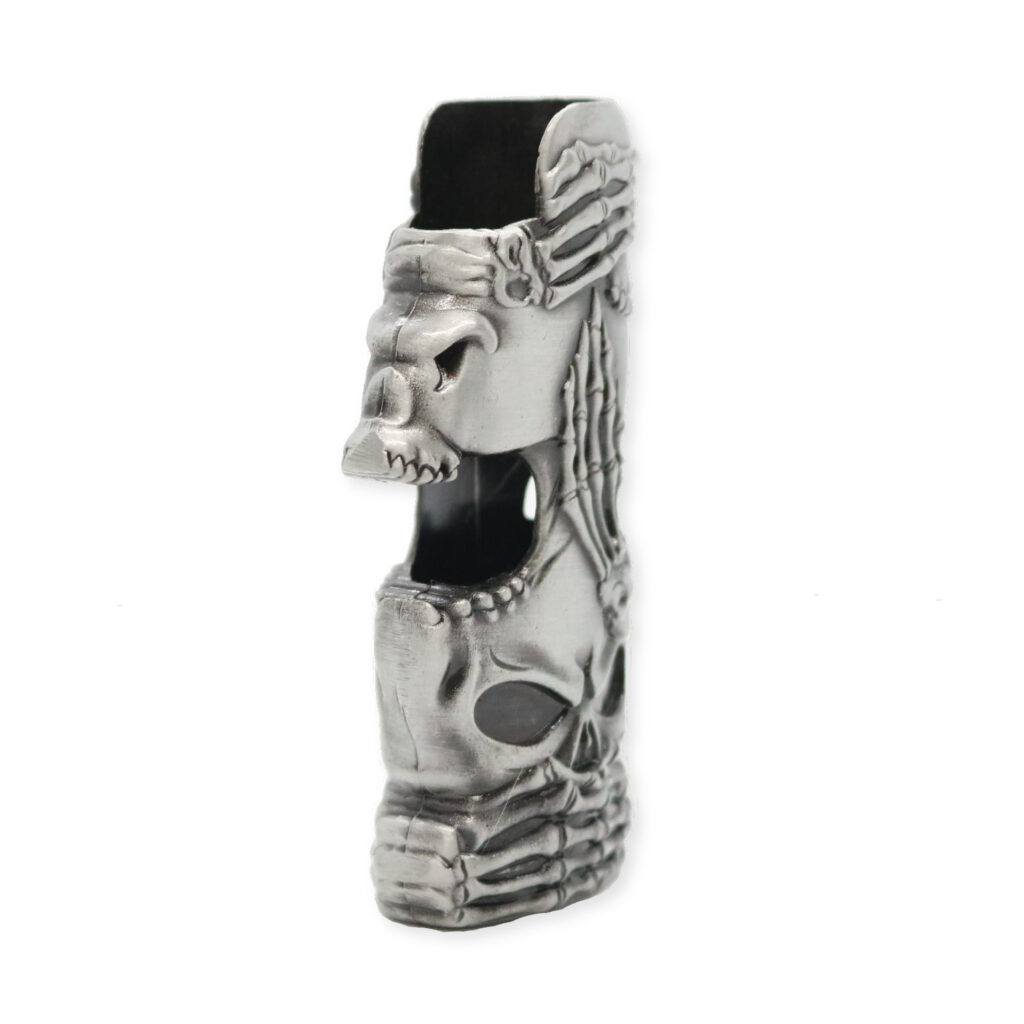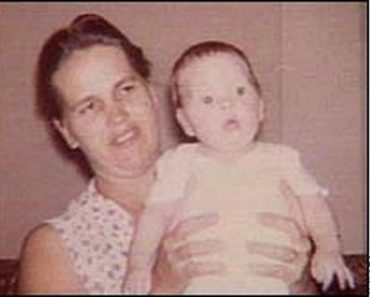Dictionary
Look Up Terms & Definitions.
Let's Learn Terms
Definition
Example
How To Say?
Glossary
Find a term by its first letter:
A Writ of Habeas Corpus means “that you have the body” of a detainee brought before the court to determine legality of said detainment
A personality disorder that is characterized by a lack of empathy and remorse, manipulative and impulsive behavior, and a tendency to engage in criminal activity.
A mental disorder that is characterized by anxiety.
A threat or attempt to inflict offensive physical contact or bodily harm on a person that puts the person in immediate danger of or in apprehension of such harm or contact
A medical examination of a body to determine the cause of death.
The study of the trajectory of a bullet or other projectile.
Battery is a criminal offense involving unlawful physical contact, distinct from assault which is the act of creating apprehension of such contact. Battery is a specific common law offense, although the term is used more generally to refer to any unlawful offensive physical contact with another person.
A mental disorder that is characterized by periods of mania and depression.
Bipolar Disorder was formerly called manic depression. It is a mental health condition that causes a person to suffer from extreme mood swings that include emotional highs and lows.
Blackmail is an act of coercion using the threat of revealing or publicizing either substantially true or false information about a person or people unless certain demands are met. It is often damaging information, and it may be revealed to family members or associates rather than to the general public. These acts can also involve using threats of physical, mental or emotional harm, or of criminal prosecution, against the victim or someone close to the victim.
The pattern that is formed when blood is sprayed onto a surface.
A military-style program for juvenile offenders that is designed to instill discipline and structure.
Bribery is the offering, giving, receiving, or soliciting of any item of value to influence the actions of an official, or other person, in charge of a public or legal duty.
Burglary is prosecuted as a felony or misdemeanor and involves trespassing, entering a building or automobile, or loitering unlawfully with intent to commit any crime, but usually some type of theft.
A murder that is punishable by death.
The punishment of death for a capital crime.
Capital Punishment is a state-sanctioned practice of legally killing a person as a punishment for a capital crime.
A section of a prison where inmates are housed in individual cells.
In law, Common Law (also known as judicial precedent or judge-made law, or case law) is the body of law created by judges and similar quasi-judicial tribunals by virtue of being stated in written opinions. The defining characteristic of “common law” is that it arises as precedent.
A legal term that describes a person’s ability to understand the criminal proceedings against them and to assist in their own defense.
A murder that is carried out for financial gain, usually involving a professional hitman.
The location of a crime.
A person who has committed a crime.
A person who uses psychological techniques to analyze a criminal’s behavior in order to provide information that can be used in an investigation.
The questioning of a witness by the attorney for the opposing side in order to test the accuracy of their testimony.
The punishment of death for a capital crime.
The section of a prison where inmates who have been sentenced to death are held.
The section of a prison where inmates who have been sentenced to death are held.
A mental disorder that is characterized by feelings of sadness, loss of interest or pleasure, feelings of guilt or low self-worth, disturbed sleep or appetite, low energy, and poor concentration.
A police officer who is responsible for investigating crimes.
The unique genetic information that is contained in the cells of living organisms.
A method of execution in which an electric current is passed through the body of the condemned person, causing death by electrocution.
A piece of information that is used to prove or disprove a fact.
The carrying out of a death sentence.
A person who has been convicted of a crime and later exonerated.
A person who saw an event take place.
A confession that is given by a person who is not guilty of the crime.
Familicide or Family Annihilation is the act of killing one’s own family members, usually in quick succession and often falling under one of four motives
A murder that is committed during the course of another felony, such as robbery or rape.
The unique patterns that are formed by the ridges on the fingers and thumbs.
A method of execution in which the condemned person is shot to death by a group of gunmen.
A murder that is premeditated or carried out in a particularly heinous manner.
A prison that is operated by a private company for profit.
The application of psychology to the criminal justice system.
A murder that is committed as part of or in furtherance of criminal gang activity.
A method of execution in which the condemned person is placed in a chamber and exposed to poisonous gas, causing death by asphyxiation.
A facility where people who have been convicted of crimes can live and receive treatment and counseling.
A method of execution in which the condemned person is hanged by the neck until death.
Execution by hanging is, in all reality, strangulation. It restricts the person’ air supply at the neck. Unconsciousness occurs between two and four minutes and death could take as long as ten minutes or more. This then is actually death by asphyxiation.
A statement that is made by a witness that is not based on their personal knowledge.
Histrionic Personality Disorder is one of 10 personality disorders. It falls into the same classification as borderline, antisocial and narcissistic personality disorders.
A legal term that describes a mental state in which a person cannot understand the nature of their actions or cannot tell right from wrong.
The questioning of a suspect by law enforcement in an attempt to obtain information about a crime.
An inmate who provides information to the police or prosecutors in exchange for leniency.
A facility where people are incarcerated as punishment for crimes they have committed.
A public official who presides over a court of law and is responsible for ensuring that the law is followed.
A group of people who are selected to hear the evidence in a trial and decide whether the defendant is guilty or not guilty.
A facility where juveniles who have been accused or convicted of crimes are held.
A method of execution in which a lethal dose of drugs is injected into the veins of the condemned person.
A machine that is used to detect lies by measuring physiological responses, such as heart rate and blood pressure.
A sentence of imprisonment for life with no possibility of parole.
A sentence of imprisonment for life with no possibility of parole.
The act of feigning or exaggerating mental illness for personal gain.
A sentencing guideline that requires a minimum sentence for certain crimes.
A homicide that is not premeditated or planned, or that is committed in the heat of the moment.
The large-scale imprisonment of people.
A person who kills four or more people in a single event (not including the killer).
Maternal Filicide is the act of killing one’s own child / children. Maternal filicide perpetrators fall into one of five major motives.
altruistic filicide | acutely psychotic filicide | maltreatment filicide | unwanted child filicide | spouse revenge filicide
Filicide is usually committed by the mother. World psychiatric literature on maternal filicide found filicidal mothers to have frequent depression, psychosis, prior mental health treatment and suicidal thoughts.
A general term for a mental disorder.
Munchausen Syndrome by Proxy simply put is an attention-seeking, sociopathic disorder that can often overlap with other disorders, such as narcissistic personality disorder and/ or borderline personality disorder.
The person with Munchausen by Proxy (also now referred to as factitious disorder imposed on another or FDIA) gains much sought after attention – which is in fact the true goal – by seeking medical help for exaggerated or made-up symptoms of a child (or perhaps elderly person) in their care.
A homicide that is the result of negligence or carelessness, but not intentional.
A mental disorder that is characterized by anxiety or depression.
Nolle prosequi, means “to be unwilling to pursue”. It is used to voluntarily end a criminal case before trial or rendering a verdict
A mental disorder that is characterized by obsessions and compulsions.
A sentence in which a person convicted of a crime is released from prison before their sentence is complete, under the supervision of a parole officer.
Parricide | The Act of Killing One’s Own Parents | Author This site contains affiliate links. We may, at no cost to you, receive a commission for purchases made through these links Parricide RELATED Sources: thestar.com | xyonline.net | en.wikipedia.org | jaapl.org | scholarsarchive.library.albany.edu | digitalcommons.northgeorgia.edu | onlinelibrary.wiley.com | researchgate.net | YOU MAY ALSO BE INTERESTED IN
The study of the structure and function of the body’s organs and tissues.
The use of excessive or unnecessary force by police officers.
A machine that is used to detect lies by measuring physiological responses, such as heart rate and blood pressure.
A mental disorder that is characterized by flashbacks, nightmares, and avoidance of anything that reminds the person of the trauma.
A facility where people are incarcerated as punishment for crimes they have committed.
The system of financial incentives that exist for prisons and other criminal justice institutions.
A facility where people are incarcerated as punishment for crimes they have committed.
A sentence in which a person convicted of a crime is released into the community under the supervision of a probation officer.
A hospital that specializes in the treatment of mental disorders.
A personality disorder that is characterized by a lack of empathy and remorse, manipulative and impulsive behavior, and a tendency to engage in criminal activity.
A personality disorder that is characterized by a lack of empathy and remorse, manipulative and impulsive behavior, and a tendency to engage in criminal activity.
Psychopathy is a neuropsychiatric disorder marked by deficient emotional responses, lack of empathy, and poor behavioral controls, commonly resulting in persistent antisocial deviance and criminal behavior.
A psychopath is a person with a chronic mental disorder with abnormal or violent social behavior.
A mental disorder that is characterized by a loss of contact with reality and an impaired ability to function.
The treatment of mental disorders through the use of psychological techniques.
The act of targeting people for police or security scrutiny based on their race or ethnicity.
The act of repeating an offense.
The process of helping a person who has been convicted of a crime to lead a law-abiding life.
Schizophrenia is a long-term mental disorder involving a breakdown in the relation between thought, emotion and behavior, leading to faulty perception, inappropriate actions and feelings, withdrawal from reality and personal relationships into fantasy and delusion and a sense of mental fragmentation.
A murder that is not premeditated but is carried out with intent to kill.
The imposition of a penalty on a person who has been convicted of a crime.
A person who sets fire to multiple buildings or other property over a period of time.
A person who murders three or more people, usually in service of abnormal psychological gratification, with the murders taking place over more than a month and including a significant period of time between them.
A person who commits multiple rapes, usually of strangers, over a period of time.
A personality disorder that is characterized by a lack of empathy and remorse, manipulative and impulsive behavior, and a tendency to engage in criminal activity.
Sociopathy refers to a pattern of antisocial behaviors and attitudes. These include manipulation, deceit, aggression and a lack of empathy for others. Sociopathy is a non-diagnostic term, and it is not synonymous with “psychopathy,” though the overlap quite often leads to confusion. Sociopaths may or may not break the law, but use tactics of exploiting and manipulating others to gain for themselves what they desire.
The practice of isolating inmates in individual cells for long periods of time, typically 23 hours a day with no human contact.
The practice of isolating inmates in individual cells for long periods of time, typically 23 hours a day with no human contact.
A person who kills two or more people in a short period of time (usually within 24 hours) in multiple locations.
Statutory Law or Statute Law is written law passed by a body of legislature. This is as opposed to oral or customary law; or regulatory law promulgated by the executive or common law of the judiciary
A statement made by a witness under oath.
Murder is the unlawful killing of another human person with malice aforethought, as defined in Common Law countries. Murder is generally distinguished from other forms of homicide by the elements of malice aforethought and the lack of lawful justification. All jurisdictions, ancient and modern, consider it a most serious crime and therefore impose severe penalty on its commission. Definition Common law murder is defined as the: 1. unlawful 2. killing 3. of another human person 4. with a state of mind known as “malice aforethought.” The first three elements are relatively straightforward; however, the concept of “malice aforethought” is a complex one that does not necessarily
A murder that is not premeditated but is committed in the course of another felony.
A law that imposes a mandatory sentence of life imprisonment on a person who is convicted of a third felony.
A tort, in common law jurisdiction, is a civil wrong that causes a claimant to suffer loss or harm, resulting in legal liability for the person who commits the tortious act. It can include intentional infliction of emotional distress, negligence, financial loss, injury, invasion of privacy, and numerous other harms.
The study of the effects of poisons on the human body.
A genre of books, movies, and TV shows that focus on real-life criminal cases.
A homicide that is committed by operating a vehicle in a reckless or negligent manner.
The decision of a jury or judge in a criminal case.
A program in which inmates are allowed to leave prison during the day to work and return at night.
A conviction that is based on false or incomplete evidence.























































